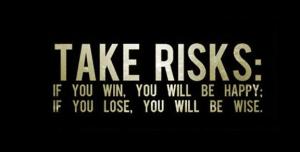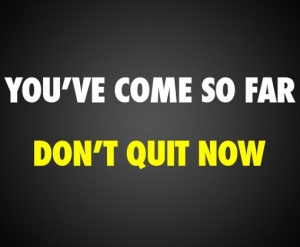
Everyone is well aware that having a finance department is essential for any business in all industries to progress. However, when comes to startups its more about when is the right time to set one up, and who will be responsible for overseeing the company’s finances. We’ve seen the difficulties many startups are having with this conundrum and came up with a few tips to help you get started on setting up your finance department.
When a company is just getting started and can’t afford an accountant one of the best moves is look into accounting software programs. Options such as QuickBooks is reasonably priced and will do the number crunching for you. Most startups do their own accounting using multiple spreadsheets, ledgers etc. but technology has created a way for startups to save time on doing math and more time on marketing the business. Utilize the ability to let a computer do the work for you and start figuring out a way to get paid from any outstanding receivables.
Live within your means when it’s time to expand. As the business grows in revenue, you’ll need more help handling the finances, and hiring an accounting firm can be very time costly experience if you don’t know what you’re doing. Research both large and smaller firms, be clear about your expectations and budget when speaking to their agents. Do not discredit smaller firms because on occasion they can produce the type of financial assistance you require within your budget and building business relationships never hurts. A lot of startups can get swept up in the appeal of a large financial firm taking over but unable to maintain the costs associated. There is nothing impressive about going with a big firm if you don’t have the big budget to match it. Keep it simple.
Finally, consider hiring contract, part-time, or freelance bookkeepers to complete your finance department. Not every business needs a full time dedicated finance department. Take advantage of these options and seek outside help who can pick up some of the workloads where your business may be falling short. It’s usually just as effective and keeps costs low while you wait for your business to take that next step up in revenue to hire full-time staff.

 This past weekend was the annual Wish Group Kickoff event, where we meet up with all of our employees to discuss what we accomplished in 2014, where we met our goals and, more importantly, where we didn’t meet our goals. I truly believe that in order to move forward, you need to take an honest look at your shortcomings and use those to get a better understanding of where you need to improve.
This past weekend was the annual Wish Group Kickoff event, where we meet up with all of our employees to discuss what we accomplished in 2014, where we met our goals and, more importantly, where we didn’t meet our goals. I truly believe that in order to move forward, you need to take an honest look at your shortcomings and use those to get a better understanding of where you need to improve. Let’s be serious – there is no doubt going to be an overabundance in blog posts detailing the importance of setting resolutions for the new year. Be it lose weight, get a promotion, go traveling or anything in between, resolutions are something that most of us set at this time of year.
Let’s be serious – there is no doubt going to be an overabundance in blog posts detailing the importance of setting resolutions for the new year. Be it lose weight, get a promotion, go traveling or anything in between, resolutions are something that most of us set at this time of year. This past weekend in Toronto was the Scotiabank Waterfront Marathon that had over 25,000 participants, with a few here in the Wish Group participating as well. Even though I run every now and then and do play hockey, I have to commend runners because it’s really an entirely different beast than most sports. Where hockey is tough, fast and furious, I find that long distance running is slower but a lot more mentally involved. It’s for this reason that I think long distance running can teach entrepreneurs many practical lessons about running their business.
This past weekend in Toronto was the Scotiabank Waterfront Marathon that had over 25,000 participants, with a few here in the Wish Group participating as well. Even though I run every now and then and do play hockey, I have to commend runners because it’s really an entirely different beast than most sports. Where hockey is tough, fast and furious, I find that long distance running is slower but a lot more mentally involved. It’s for this reason that I think long distance running can teach entrepreneurs many practical lessons about running their business. Surely you’ve heard people mention in passing that they live by a “code”, but what does that mean exactly? While I could delve into many different territories here, something that I believe all “codes” follow is that they set certain standards and expectations.
Surely you’ve heard people mention in passing that they live by a “code”, but what does that mean exactly? While I could delve into many different territories here, something that I believe all “codes” follow is that they set certain standards and expectations. Entrepreneurs are known as risk-takers. Whether the risk involves investing a large sum of money into a new venture or hiring a new employee, it’s critical to evaluate whether the risk is worth taking.
Entrepreneurs are known as risk-takers. Whether the risk involves investing a large sum of money into a new venture or hiring a new employee, it’s critical to evaluate whether the risk is worth taking. By nature, an entrepreneur runs head first into things regardless of the risk, meaning that sometimes we make mistakes that make us want to quit. Though it’s hectic and overwhelming, especially when dealing with multiple businesses, you need to learn to move past these small missteps to truly succeed.
By nature, an entrepreneur runs head first into things regardless of the risk, meaning that sometimes we make mistakes that make us want to quit. Though it’s hectic and overwhelming, especially when dealing with multiple businesses, you need to learn to move past these small missteps to truly succeed.